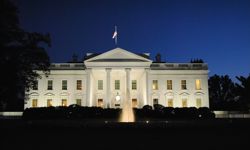
Foreign Secretary Dominic Raab said the murder of the Washington Post journalist in Istanbul in 2018 was among some of the worst human rights abuses.
The announcement by the Foreign and Commonwealth Office followed an earlier commitment by the UK Government to protect media freedom worldwide and come as part of the Global Human Rights Sanctions Regulations 2020.
The SoE wrote to the Foreign Secretary earlier this year to express the hope the government would continue to support its earlier stance on global media freedom. In a response to the Society, the Foreign Secretary outlined his continued commitment to action to ensure the protection of journalists.
Ian Murray, executive director of the Society of Editors said the travel bans and asset freeze imposed by the government on 20 Saudi nations believed to have been involved in the killing of Mr Khashoggi sent a powerful signal.
“The Society’s members can only applaud action taken by the Foreign and Commonwealth Office that journalists should be protected and certainly not persecuted wherever they work.”
Saudi journalist and Washington Post columnist Jamal Khashoggi was killed in the Saudi consulate in Turkey in October 2018 and his body has never been found.
Among the 20 men given a travel ban and asset freeze by the UK Government today are Saud Al Qahtani, who was the Crown Prince’s advisor in the royal court. The Foreign Office said he was a “senior official who planned and directed the killing using a 15-man team”.
Mohammad Al-Otaibi, the Saudi Consul General in Istanbul at the time, has also been sanctioned. The Government said he was involved in facilitating the killing and in the concealment of evidence.
Others included were intelligence officers or military, including Ahmad Hassan Mohammed Al Asiri who was deputy head of the Saudi Intelligence service.












